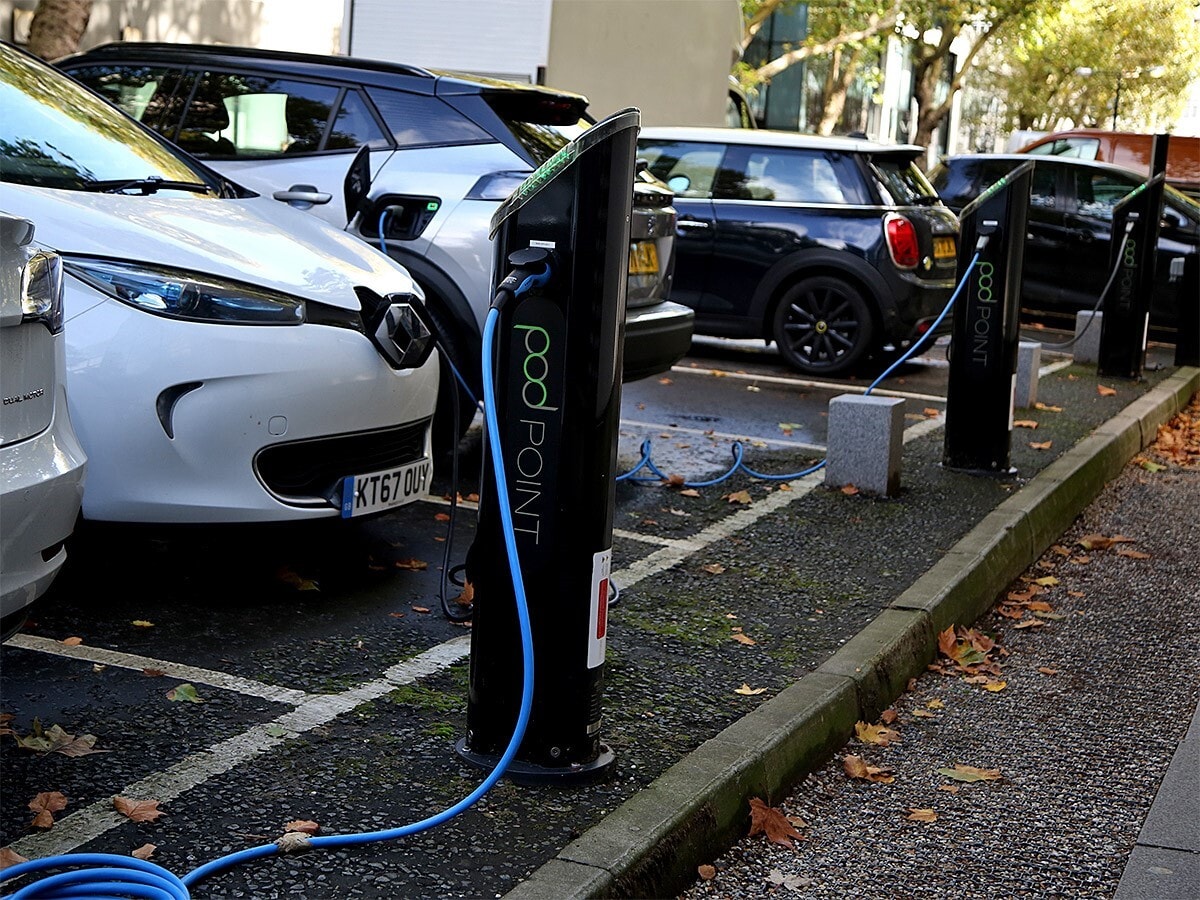Manufacturers such as Honda [HMC] and Volkswagen [VOW3] are ramping up their production of electric vehicles in China as demand for clean energy soars in the world’s second-largest economy.
Although automotive share prices are still being rocked by semiconductor shortages and the resultant slowdown in production, China’s appetite for EVs could be the key to ensuring automaker share prices stay afloat in 2022.
Volkswagen said its third electric car plant in China would come on stream at the end of 2023, taking its total production capacity in the country to 900,000 fully electric and hybrid cars, up from 600,000.
“The electric offensive in China is on track, even though the supply bottlenecks for semiconductors observed towards the end of the year also affected the electric vehicles that had previously been prioritised for production,” said CEO Ralf Brandstätter.
A total of 77,100 battery electric vehicles (BEVs) were delivered by VW in 2021, an increase of 437%, making it one of the five largest providers in China. The company said a “further considerable increase is planned for 2022”.
“The electric offensive in China is on track, even though the supply bottlenecks for semiconductors observed towards the end of the year also affected the electric vehicles that had previously been prioritised for production” - Volkswagen CEO Ralf Brandstätter
Although the VW share price was impacted by the ongoing global chip shortage, share prices at the close on 18 January were 49.4% higher than the same point in 2021 at $30.18. Prices have remained fairly stable entering 2022, with a 2.7% increase in the share price in the days following the news on 11 January that VW had doubled its electric sales worldwide.
Where does China stand in the global EV market?
According to the China Passenger Car Association, annual sales of BEVs and plug-in hybrids in China rocketed 158% last year to 3.52 million – accounting for just over half the global total.
The market leader in EVs was domestic manufacturer BYD, which sold 593,745 plug-in cars in China last year, up 232% and a new record for electric vehicle sales in the country. SAIC-GM-Wuling came next with 431,130, followed by Tesla China with 320,743.
Tesla sold 70,847 China-made vehicles in December, its highest monthly rate since it started manufacturing in its Shanghai Gigafactory in 2019. Reports of the block buster year in China lifted the already rising Tesla share price further.
Companies like Tesla and Honda are making moves in China
There have been rumours that Tesla [TSLA] is considering building another Chinese-based Gigafactory, though the company has has confirmed this.
This news comes as the Chinese government lifts a ban on foreign ownership of Chinese car factories. It hopes such moves will help ensure new energy vehicles will comprise 20% of all new car sales by 2025, up from 13.4% in 2021.
Japanese manufacturer Honda revealed earlier this month that it plans to build an EV factory in Wuhan “in preparation for the expansion of its EV lineup in the coming years”. It is expected that the facility will produce around 120,000 electric vehicles per year.
Honda’s share price, which had risen 10.2% year-on-year at the close on 18 January to $30.41, was up a modest 3.9% in the fortnight following the announcement of the new facility.
The growth is certainly expected to keep coming this year, with the China Association of Automobile Manufacturers estimating that new energy vehicle sales in China will grow by 47% to 5 million. If this continues, automotive share prices could be on the up as manufacturers tap into this burgeoning market.
Growth drivers for China’s EV industry
Alongside new production capacity, other drivers include a growing Chinese middle class eager to buy new and more diverse EV models, as well as restrictions on fossil fuel-powered vehicles in larger cities.
New EV brands are attracting Chinese customers by offering service that exceeds packages by existing premium and luxury brands, said Ashley Sutcliffe, public relations director at the Geely Group, late last year, reported Autocar.
Brian Gu, vice-chairman and president of manufacturer Xpeng [XPEV], said availability of very good, smart EV products and broader customer awareness has upped penetration in the country.
Headwinds for in China for automotive share prices
The expected climb in sales will come despite a continued glut in the supply of semiconductors — a vital component of the EV manufacturing process — and the ending of China’s subsidy for electric vehicles.
The subsidies, which have helped the market expand since 2009, were cut by 30% at the start of 2022 and will be withdrawn completely at the end of the year.
The government hopes that after more than a decade of ongoing investment, the sector — comprising car makers, battery suppliers and infrastructure worth over £50bn — will be self-sufficient.
However, other challenges remain, with UBS warning that a looming price war in the hotly competitive Chinese EV market could impact sector share prices.
“There might be greater supply than demand in the Chinese EV market this year, since consumption could be reduced by slowing economic growth,” Paul Gong, head of China auto research at UBS, said.
“There might be greater supply than demand in the Chinese EV market this year, since consumption could be reduced by slowing economic growth” - UBS Head of China auto research Paul Gong
UBS still expects EV sales in China to rise by 35% this year to over 4 million vehicles and rack up 7.05 million units by 2025.
Innovation will be key to ensuring that automakers boost their share prices. Tesla and other manufacturers in the country much more eager to use lithium iron phosphate batteries than their global counterparts because they are cost effective and safer, according to Tesla CEO Elon Musk.
With plenty of opportunity to tap into China’s growing EV industry, automotive share prices keep charging ahead.
Continue reading for FREE
- Includes free newsletter updates, unsubscribe anytime. Privacy policy





